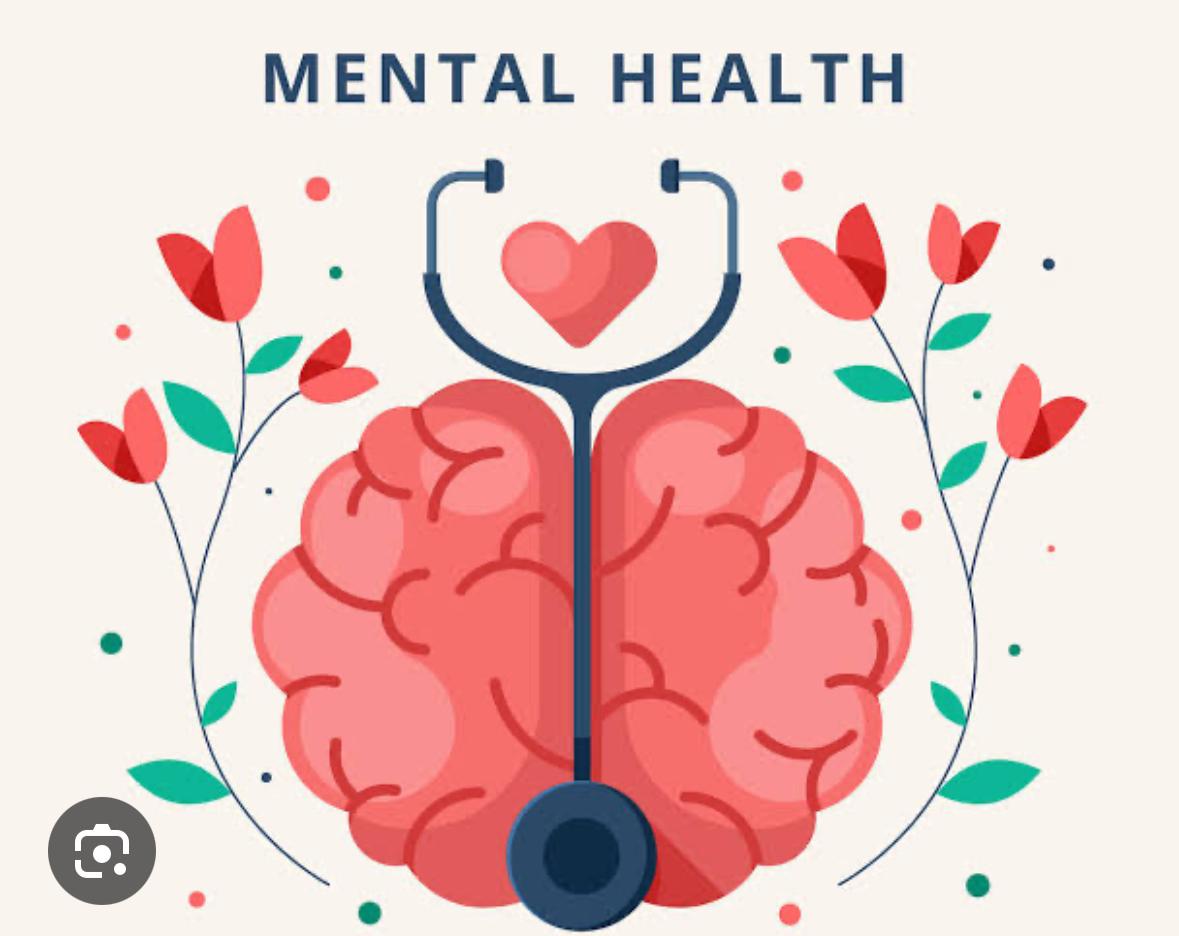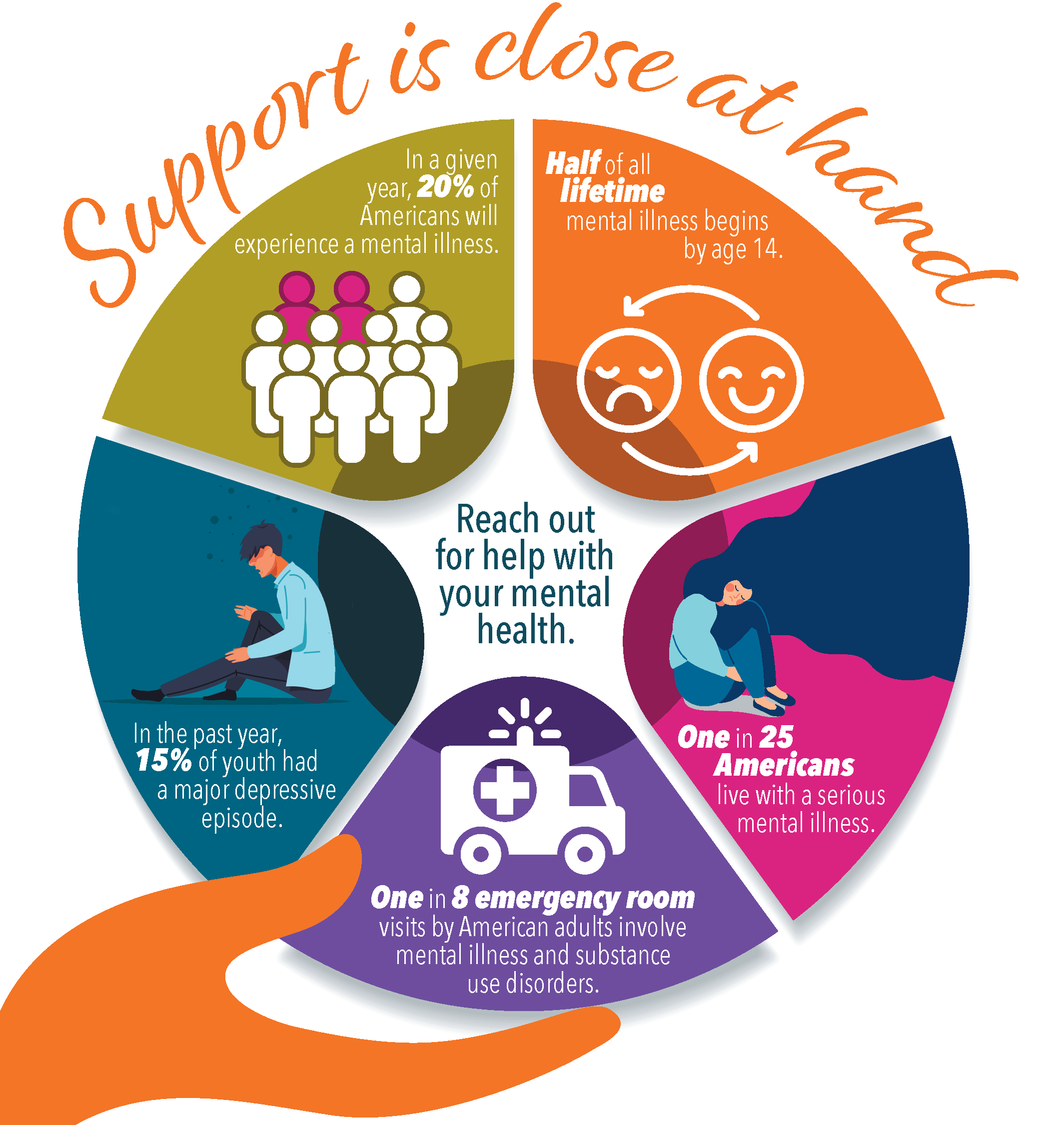Comprehensive Guide to Inpatient Mental Health Services Options
Comprehensive Guide to Inpatient Mental Health Services Options
Blog Article
Comprehensive Inpatient Mental Health Solutions for Effective Treatment
Inpatient mental health and wellness services represent an essential element of the medical care system, offering a organized and extensive atmosphere for people experiencing severe mental distress. These solutions employ a multidisciplinary method, integrating various evidence-based treatments to resolve the complex requirements of individuals. The performance of such thorough care extends beyond instant stablizing; it additionally incorporates the change to outpatient assistance, a critical phase often neglected - mental health services. Checking out the nuances of this continuum exposes considerable ramifications for both private recovery and broader mental health and wellness results. What elements really influence this transition, and how can we enhance its performance?
Comprehending Inpatient Mental Wellness Providers
Inpatient mental health solutions supply vital support for individuals experiencing severe emotional distress that can not be handled efficiently in an outpatient setup. These services are designed to supply an intensive degree of treatment in a structured setting, typically within a medical facility or specialized center. Individuals admitted to inpatient programs normally present acute signs and symptoms, such as suicidal ideation, serious clinical depression, or psychosis, requiring day-and-night tracking and intervention.
The admission process generally involves a comprehensive evaluation by mental health and wellness professionals, who review the individual's mindset, background, and immediate demands. Once admitted, individuals participate in a selection of healing modalities customized to their specific requirements, consisting of medication management, private therapy, and team sessions. This holistic technique intends to maintain the patient's problem, promote security, and foster coping skills.
Inpatient psychological wellness solutions not only address prompt wellness problems yet likewise act as a bridge to recurring treatment. By providing a controlled atmosphere, these solutions help with the growth of therapy plans that can be continued in outpatient settings, thus ensuring a continuum of care and enhancing lasting results for people with intricate psychological health requirements.
Key Elements of Effective Therapy
Effective therapy in inpatient psychological health solutions makes up several key elements that promote healing and stabilization. A comprehensive assessment is essential to identify the individual's certain needs and difficulties. This assessment notifies the development of a customized therapy plan, which offers as a roadmap for treatment.
Another vital element is the multidisciplinary team technique. Cooperation amongst psychiatrists, psychologists, registered nurses, and social employees makes certain that different perspectives contribute to the client's care, improving the efficiency of therapy. Evidence-based restorative methods, such as cognitive-behavioral therapy (CBT) and dialectical behavior modification (DBT), are likewise integral, giving organized techniques that resolve maladaptive thought patterns and behavior problems.

Last but not least, a concentrate on aftercare planning is essential to ensure a smooth transition to outpatient solutions, lessening the risk of regression and promoting long-lasting wellness. These cumulative elements create a reliable treatment structure within inpatient mental wellness services.
Advantages of Comprehensive Care

Thorough treatment in inpatient psychological health and wellness services uses various benefits that substantially enhance client results. Among the key benefits is the holistic method to treatment, attending to not just the psychological signs however additionally the physical, social, and psychological demands of patients. This extensive evaluation permits customized interventions that promote overall well-being.
One more benefit is the combination of multidisciplinary teams, which promotes partnership among health care experts. This collective atmosphere guarantees that clients get coordinated care, reducing the risk of fragmented therapy and improving communication among caregivers. Furthermore, comprehensive treatment promotes connection of services, allowing for smooth shifts from inpatient to outpatient settings, which is essential for long-term recuperation.

Last but not least, the organized atmosphere of detailed inpatient care offers a safe space for people to involve in restorative activities, helping them develop dealing methods and durability. Collectively, these advantages add to a lot more efficient treatment and boosted lifestyle for people experiencing psychological health and wellness crises.
Evidence-Based Healing Techniques
In the realm of mental wellness treatment, evidence-based therapeutic strategies play a vital duty in making sure that clients obtain efficient and scientifically sustained interventions. These approaches incorporate the very best readily available research study with scientific know-how and person worths, cultivating a tailored therapy experience that deals with specific demands.
Cognitive Behavior Therapy (CBT) is just one of the most commonly identified evidence-based methods, concentrating on determining and altering adverse thought patterns and habits. This organized strategy has demonstrated effectiveness in dealing with problems such as anxiety, anxiety, and ptsd. Dialectical Actions Treatment (DBT) is specifically effective for individuals with borderline individuality disorder, emphasizing the development of psychological law and social performance abilities.
Furthermore, medicine administration is often an essential component of evidence-based treatment, as psychotropic drugs can relieve signs and symptoms and enhance general functioning. Joint treatment designs, which involve multidisciplinary groups, additionally improve the efficacy of inpatient solutions by making certain detailed assessments and continuous surveillance.
Inevitably, the combination of evidence-based therapeutic strategies not just advertises positive clinical end results however also encourages individuals, fostering a feeling of company and resilience in their psychological health trips.
Transitioning to Outpatient Support
The shift from inpatient mental wellness services to outpatient assistance marks a crucial stage in a client's recuperation journey. This period requires cautious preparation and sychronisation to ensure connection of care and to alleviate the risks of relapse or situation. Efficient discharge preparation ought to start early in the inpatient remain, involving more information a multidisciplinary team that includes psychoanalysts, psychologists, registered nurses, and social employees.
Secret components of a successful shift consist of the development of a thorough aftercare plan tailored to the person's specific requirements. This strategy should describe follow-up consultations, medication administration, and healing interventions, in addition to recognize community resources and assistance teams that can facilitate continuous healing.
In addition, patient and household education and learning is essential during this phase. Comprehending the indicators of possible setbacks and the significance of sticking to therapy can equip individuals and their assistance systems.
Normal follow-up and reassessment of the outpatient plan are important to resolve evolving challenges. By fostering a collaborative connection between inpatient and outpatient carriers, the chance of continual recuperation rises, eventually improving the patient's lifestyle and reducing the danger of readmission.

Verdict
In recap, detailed over at this website inpatient psychological health and wellness solutions use a necessary structure for attending to serious mental distress with a multidisciplinary approach. Ultimately, such comprehensive treatment is have a peek at these guys essential for lasting psychological health and wellness and wellness.
The admission process usually entails a thorough analysis by mental health professionals, who evaluate the person's psychological state, history, and immediate demands.Reliable treatment in inpatient mental wellness solutions comprises several vital elements that foster healing and stablizing.Comprehensive care in inpatient psychological health and wellness services supplies various benefits that dramatically improve patient end results.The shift from inpatient mental health and wellness solutions to outpatient support notes an important phase in a person's healing trip.In summary, comprehensive inpatient psychological wellness services supply a necessary framework for attending to severe psychological distress with a multidisciplinary approach.
Report this page